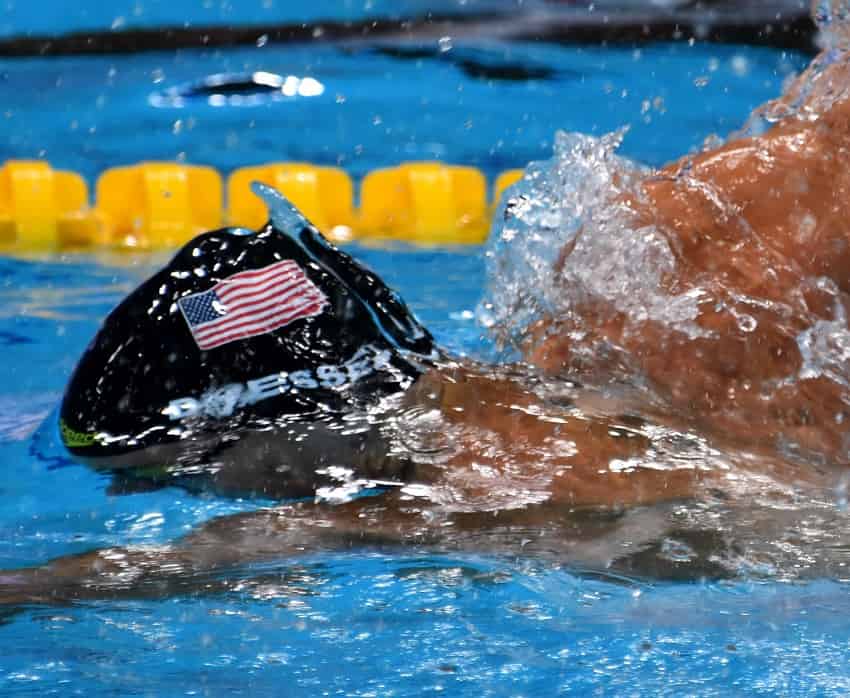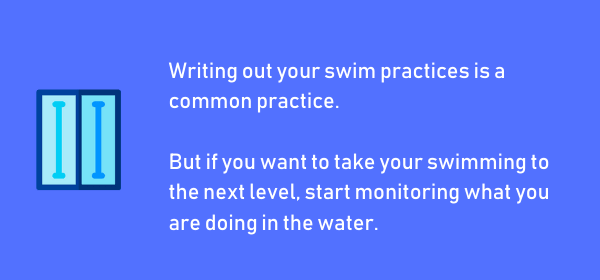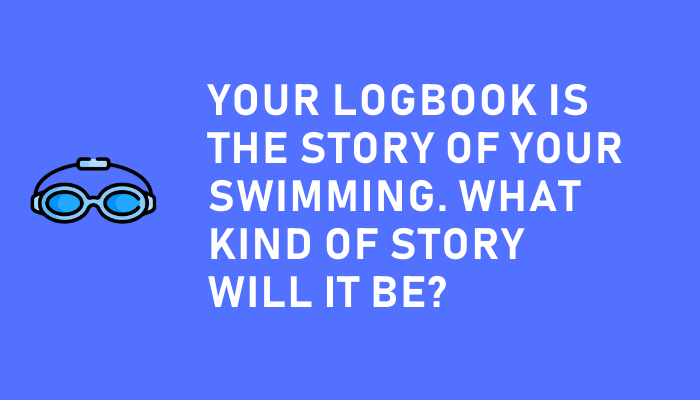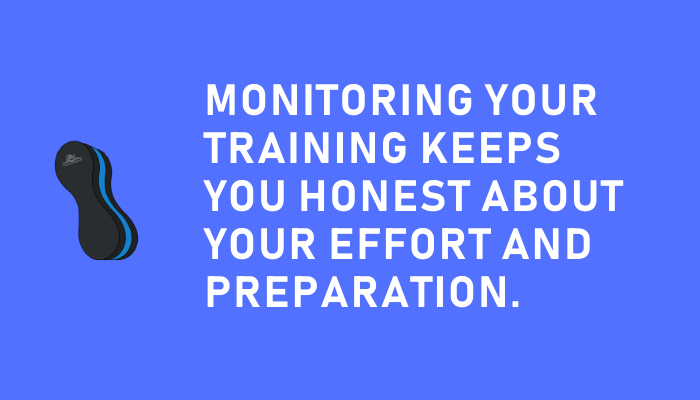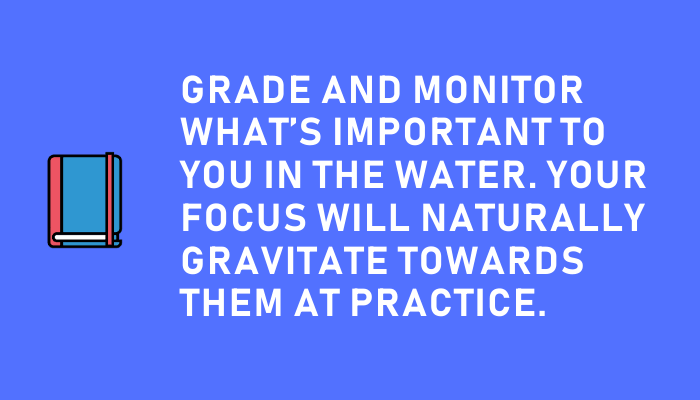Writing out your swim practices is something that I have talked about at length on this blog.
This is something I preach and practice myself.
Since my age group swimming days, logging practices has been part of my routine. I get home from the pool, plop down at the desk, or the couch, or if I am really bagged, in bed, and write out my workout.
Great, good, mediocre, bad, worst-ever. It doesn’t matter, the workout goes into the pages of my logbook.
The moments of reflection give me a chance to step back and look across the landscape of my swimming. From the pages of my logbook I get a sense of progress (or lack thereof), I get an overview of how quality the training has been, and I get a glimpse into lifestyle factors, including stress, nutrition and sleep.
Reflecting on my workouts means I recognize the things that worked really well, whether it was a drill that had my stroke feeling amazing, a pre-set that had me primed, or a technical adjustment that unlocked more efficient swimming.
Following the details of the sets, intervals, and results are celebratory reflections (“Nailed that interval, finally!!!”) and not-so-celebratory commentary (“Hot garbage”).
No matter how the workout went today, I try to end the recording of the practice with something to work on tomorrow.
This kind of logging and self-monitoring is something a lot of athletes and swimmers do, including some of the biggest names in swimming.
Caeleb Dressel is well known for using notebooks to write out detailed entries about his workouts, including how he wants his body to feel in the water. Dressel uses it as a form of self-coaching and discovery: “You’re just trying to write down what you can to try to figure stuff out. It’s like a puzzle.”
Katie Ledecky used a logbook as she came up and surprised the world at the London Olympics. She shared it with her age group coach, Yuri Suguiyama, who found that it opened communication between coach and athlete. “It would allow her to communicate to me in a different way,” said Suguiyama.
Distance legend Janet Evans kept a record of her jaw-dropping yardage in a logbook, too. For Evans, the process of writing out her workouts was “therapeutic and motivating.”
With all the tech available to swimmers now, from waterproof fitness trackers on your wrist to goggles that come with a heads up display, there is an overwhelming amount of data flying at you in the pool.
But to take things to the next level with your swimming, start looking beyond the intervals, yardage and times.
The Story of Your Swimming
While having the details of my workout is great, it’s the self-monitoring that I’ve done with my logs that have helped me the most.
Things like grading my workouts, recognizing when I crushed it, noting areas for improvement, tracking streaks of workouts made, and so on.
The things that aren’t necessarily reflected in the yardage totals or intervals.
While these may seem like “bonus” stuff, I’ve always found them to have the most value. And it’s something a lot of swimmers who I talk to seem to miss when it comes to logging their training.
For these swimmers, they assume that logging workouts is strictly record-keeping. Copy-pasting coach’s workout from the whiteboard to a book.
But looking at a bunch of intervals doesn’t tell the story of your swimming and doesn’t give you direction for what is next.
While it is nice to have a historical reference of your workouts, there isn’t a whole lot of value in just writing out the workout.
Elite Athletes Self-Monitor More Frequently
What do you think fills the chasm between elite and almost elite swimmers?
Talent, usually. Hard work, sure. Genetics, not unhelpful.
But in terms of something that is a little more measurable, what about self-monitoring? Where do you think that ranks as a factor for achieving excellence?
Researchers sat down with a group of 272 athletes of varying levels. Some were high-performance athletes, others recreationally competitive.
Unsurprisingly, the more elite the athlete, the more likely they engaged in self-regulated learning behaviors. It makes sense that the more elite the athlete, the more likely they are to set goals, measure progress, and so on.
On top of that, of the self-directed behaviors measured, self-monitoring was far and away what separated the elite from the less elite and the recreational.
The kind of reflection and awareness that comes from self-monitoring helps athletes to improve faster.
After all, you start to see the gears of progress and what it takes to make them turn.
You are recognizing and celebrating the little wins that develop self-confidence.
Finding opportunities for improvement.
And keeping yourself honest by reflecting on your training.
Getting Started with Smarter Logging
Logging your workouts is a powerful and simple weapon for faster swimming.
Putting pen to paper gives you an overview of your swimming, is an inventory of your performances, and is a tool to build positive feedback loops, where you see what works, what doesn’t, and learn from what you are doing in the water.
But where to start?
By grading the important things in your training, that’s where.
Things like:
- Your effort.
- Your attitude.
- How focused you were.
- How good your technique was that day.
- How much sleep you got.
By monitoring and grading the important stuff you are going to naturally place a bigger emphasis on them each day at practice.
When you get home from the pool tonight, sit down with your logbook, or a calendar, or an app, and start monitoring the things that matter most to your swimming.

